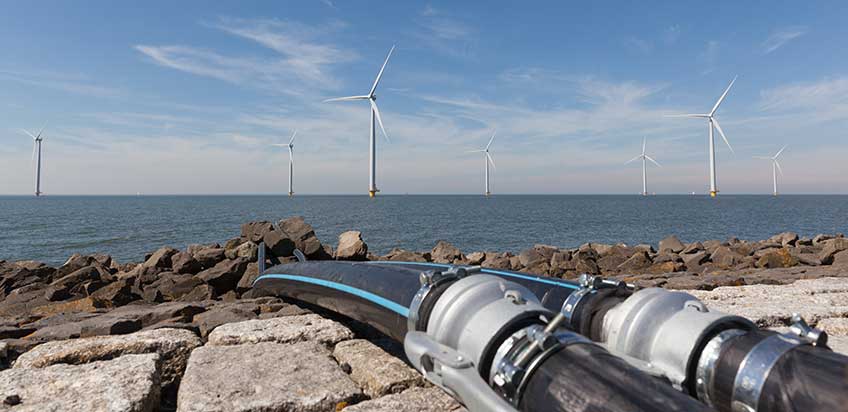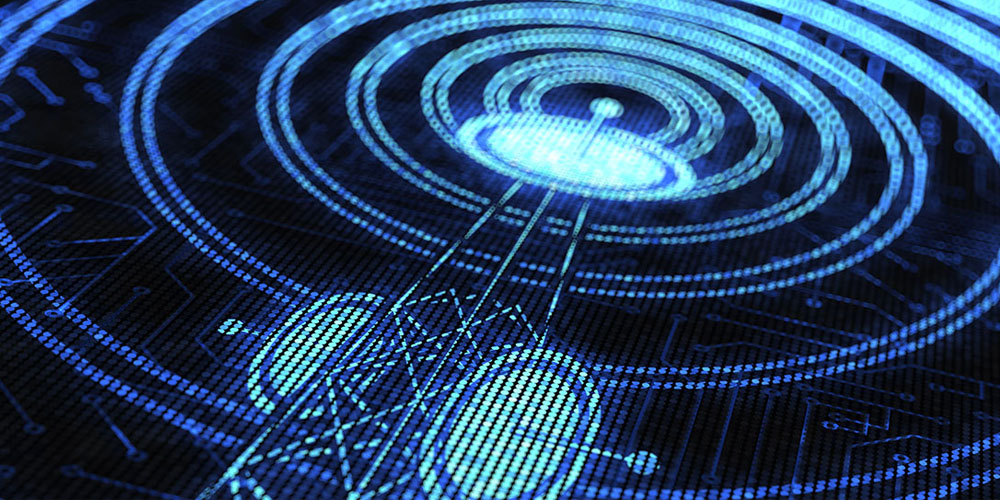albisteak
Bidirectional DC-DC Converter: An Efficient Solution for Power Conversion
Egilea: ZYG Power Module Time: 2023-7-5
Introduction:
Power conversion plays a crucial role in various applications such as renewable energy systems, electric vehicles, and energy storage systems. The bidirectional DC-DC converter has emerged as an efficient solution for power conversion due to its ability to transfer power bidirectionally between two DC voltage sources. This article aims to explore the working principle, advantages, and applications of bidirectional DC-DC converters.
Working Principle:

A bidirectional DC-DC converter consists of two unidirectional converters, namely the buck converter and boost converter, connected back-to-back. The buck converter steps down the input voltage, while the boost converter steps up the voltage. These converters are controlled by a high-frequency switching mechanism that allows energy transfer bidirectionally.
During the step-down mode, the buck converter operates as a voltage source. It controls the current flowing from the input source to the output load, stepping down the voltage to the desired level. On the other hand, during the step-up mode, the boost converter operates as a current source. It controls the current flowing from the input source to the output load, stepping up the voltage to the desired level.
Advantages of Bidirectional DC-DC Converters:
1. Energy Efficiency: Bidirectional DC-DC converters offer high energy efficiency due to their ability to transfer power bidirectionally. This feature is particularly beneficial in applications where energy needs to be efficiently transferred between different voltage sources.
2. Energy Regeneration: These converters enable energy regeneration by allowing the energy generated during load braking or deceleration to be fed back into the input source. This capability is highly desirable in applications such as electric vehicles, where regenerative braking can significantly improve overall energy efficiency.
3. Voltage Regulation: Bidirectional DC-DC converters provide excellent voltage regulation, ensuring a stable and reliable power supply to the load. The ability to step up or step down the voltage as required allows for precise control of the output voltage, even when the input voltage varies.
Applications of Bidirectional DC-DC Converters:
1. Renewable Energy Systems: Bidirectional DC-DC converters are widely used in renewable energy systems, such as solar photovoltaic (PV) and wind power systems. These converters enable efficient power transfer between the renewable energy source and the grid or energy storage system, maximizing the utilization of renewable energy.

2. Electric Vehicles: Bidirectional DC-DC converters play a crucial role in electric vehicles by facilitating efficient power transfer between the battery pack and the electric motor. Additionally, the energy regeneration capability of these converters allows the recovery of energy during braking or deceleration, thereby extending the vehicle\’s range.
3. Energy Storage Systems: Bidirectional DC-DC converters are essential components in energy storage systems, such as battery energy storage systems and supercapacitors. They enable efficient charging and discharging of the energy storage devices while maintaining voltage regulation and high energy efficiency.
Conclusion:
Bidirectional DC-DC converters have emerged as efficient solutions for power conversion in various applications. Their ability to transfer power bidirectionally, along with features like energy regeneration and voltage regulation, makes them highly desirable in renewable energy systems, electric vehicles, and energy storage systems. As technology continues to advance, bidirectional DC-DC converters are expected to play an increasingly crucial role in shaping the future of power conversion.
Aurrekoa: Car Power Inverter: Your Portable Outlet Converter for On-the-Go Power
Hurrengoa: Creating a Custom Type Power Series’ for English Language Learners
informazio garrantzitsua
-
2023-4-14
AC-DC bihurgailua: Korronte alternoa korronte zuzen bihurtzea
An AC-DC converter is an important device that converts alternating current (AC) to direct current (DC). This conversion is necessary in many electronic devices because most of them require DC power to operate. AC-DC converters are used in a wide range of applications, from small household appliances to industrial machinery. In this article, we will explore the working principle of AC-DC converters and their different types. Working Principle of AC-DC Converters The basic principle behind an AC-DC converter is to convert the sinusoidal waveform of AC power into a DC voltage. This process involves rectifying the AC waveform and filtering the resulting waveform to produce a steady DC voltage. The rectifier circuit uses diodes to convert the AC waveform into...
Ikusi xehetasunak -
2023-8-21
High quality AC/DC Power Supply Module: Revolutionizing Electrical Systems
Introduction From powering our homes to fueling industries, the importance of a stable and reliable power supply cannot be overstated. One crucial component that has revolutionized electrical systems is the AC/DC power supply module. This article aims to delve into the workings and significance of this module in our daily lives. Understanding the AC/DC Power Supply Module The AC/DC power supply module is an electronic device that converts alternating current (AC) into direct current (DC). It acts as a bridge between the mains power supply and the electrical equipment, ensuring a smooth and continuous flow of power. This module is commonly used in a wide range of devices, including computers, televisions, smartphones, and industrial machinery. Working Principle The AC/DC power...
Ikusi xehetasunak -
2023-5-18
Efficient AC to DC Converter: Transforming 120V AC to 12V DC with Superiority
Introduction: Converting AC (alternating current) to DC (direct current) is crucially important for various electronic devices to function properly as most electronics run on DC supply. The majority of commonly used electronic devices operate on 12V DC. Therefore, transforming 120V AC to 12V DC has significant importance in the technical world. An efficient AC to DC converter reduces wastage of energy and improves the performance and longevity of the electronic device. The AC to DC conversion process affects the circuit performance, security, and environmental factors. In this article, we will be discussing efficient AC to DC converters and how they could serve numerous industries by transforming typical 120V AC to 12V DC with superiority. Efficiency: Efficiency is crucial in identifying...
Ikusi xehetasunak -
2023-4-13
AC-DC bihurgailua: Korronte alternoa korronte zuzen bihurtzea
An AC-DC converter, also known as a rectifier, is an electronic device that converts alternating current (AC) to direct current (DC) by utilizing diodes or other semiconductor devices. This conversion is essential for many electronic devices that require DC power to function, such as computers, televisions, and radios. There are two main types of AC-DC converters: half-wave and full-wave rectifiers. A half-wave rectifier only allows one-half of the AC waveform to pass through, resulting in a DC voltage that is only half as large as the AC voltage. A full-wave rectifier allows the entire AC waveform to pass through, resulting in a DC voltage that is nearly equal to the AC voltage. In addition to diodes, AC-DC converters may also...
Ikusi xehetasunak -
2023-6-2
DC Power Conversion: Efficient and Reliable Solutions for Energy Management
In today's world, the demand for energy continues to increase, while the resources to meet that demand are finite. As we strive to find more efficient ways to utilize and manage our energy resources, one technology that has gained tremendous popularity is DC power conversion. DC power conversion involves the transformation of AC (alternating current) power into DC (direct current) power, which can then be used to power a wide range of devices and systems. This technology is particularly useful in applications that require a high degree of efficiency and reliability, such as data centers, telecommunications networks, and renewable energy systems. One of the key advantages of DC power conversion is its ability to reduce energy waste. Traditional AC power...
Ikusi xehetasunak -
2023-8-5
HP Series: Unleashing the Power of AC DC Converters
Introduction: In today's tech-savvy world, the demand for efficient and reliable power supply solutions is continuously increasing. AC DC converters play a crucial role in transforming alternating current (AC) into direct current (DC) to power various electronic devices and equipment. Among the leading brands in this domain is HP, with its HP Series AC DC converters. This article will delve into the features and advantages of these converters, highlighting their significance in different sectors. 1. Efficient Power Conversion: The HP Series AC DC converters are known for their high efficiency in power conversion. With cutting-edge technology and advanced design, these converters minimize power losses and maximize energy efficiency. This ensures that the converted DC power is delivered to the load...
Ikusi xehetasunak


















